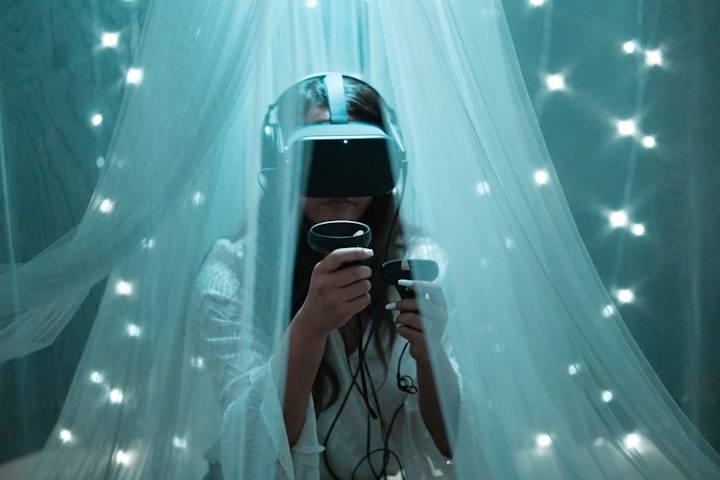Imagine the internet as we know it today as a giant city suspended in the digital universe of cyberspace. Like any city, the streets are lined with buildings — shops, entertainment venues, office towers, warehouses and public spaces. But in this city, the buildings are a vast array of websites, apps and platforms. There’s the e-bay shopping mall, there’s the YouTube cinema, there’s the Facebook park, there’s your Gmail office, and on and on.
But we currently don’t walk or drive around this city. We use search engines to find and access our desired destinations. And we typically experience these destinations via the 2D screens of our computers, tablets and smartphones.
The metaverse will be like stepping inside the internet. It will still be a giant internet city made up of websites, apps and platforms. But instead of using a 2D search engine to navigate them, we’ll use virtual reality (VR) headsets and augmented reality (AR) smart glasses to actually step inside and walk around this 3D internet city.
In other words, 2D search engines will become 3D virtual worlds we’ll use to enter, interact with, and navigate the metaverse. And we’ll exist as digital avatars inside these virtual worlds. We’ll still visit our favourite websites and apps, but it will be a more integrated, seamless experience.
So let’s say you want to share your latest Netflix discovery with friends. Right now, you’d get out your phone and share a link to the Netflix show with your friends via SMS, social media or a chat app. Your friends would access the link, watch the show when they get around to it, and respond with their reactions at an undesignated time in the not-too-distant future.
In the metaverse, that will be a different experience. You’ll pop on your VR headset and meet up with your friends as digital avatars in a virtual world. Then you’ll attend a screening of the show together, and interact with each other in real time while the show is playing out.
Meta CEO Mark Zuckerberg has been busy making slightly creepy videos trying to sell us on the metaverse. He thinks it won’t be long before we’re all hanging out in our digital space ships, playing cards with weird-looking robot avatars, gasping at trippy 3D NFT street art, and occasionally dropping into our mixed reality workplaces.
We’ll attend other social events as digital avatars too. We’ll go to work meetings, we’ll shop, we’ll play games, we’ll exercise, we’ll hang out in bars and at concerts, we’ll watch sporting events, and we’ll access a vast array of other apps and platforms that will exist inside these virtual worlds.
We’ve already seen the beginnings of the virtual worlds the metaverse will be built on in popular role-playing games like Fortnite and Roblox. You know the drill. Players exist inside the game’s world as digital avatars, and carry out various quests and missions that drive the narrative of the game.
But participants in these games are not limited to a quest-based gaming experience. They can choose to freely explore the game’s world, interact with other players, and attend and host virtual events that have nothing to do with game-play narrative. They are immersive digital worlds masquerading as games. The metaverse will be like that, but bigger. Much bigger. And in VR.
Right now, the big tech companies are building — and betting on — their virtual worlds to serve as the infrastructure of the metaverse. Remember the search engine wars of the 90s? Before Google conquered all, search engines like Yahoo and AltaVista competed for dominance as the go-to internet navigator. The same thing could happen in the early days of the metaverse.
Epic Games (owner of Fortnite) and Roblox Corporation are both in the box seat to evolve their virtual gaming worlds into the platform that will serve as the Google-like infrastructure of the metaverse.
Meta (formerly Facebook) is also in on the game. The company is creating a series of digital spaces it hopes will underpin the metaverse. Horizon Home will be your digital residence where you can host friends, watch immersive videos, do a yoga session, or simply hang out in your digital undies.
Horizon Worlds will be where you go for a virtual night out on the town — whether that’s attending a comedy show with friends, heading to an NFT art gallery, or as an entry point into any number of custom experiences.
Meta also wants you to work in the metaverse. Horizon Workrooms will bring people together to work and meet in a digital VR office environment — while your physical body is wrapped in pajamas on your real-world couch.
Whether the metaverse will consist of several competing virtual worlds we’ll chop and change between, or a single Google-like virtual world that will knit the metaverse together as a unified whole, is the billion-dollar question.



No comments yet
Be the first to share your thoughts!